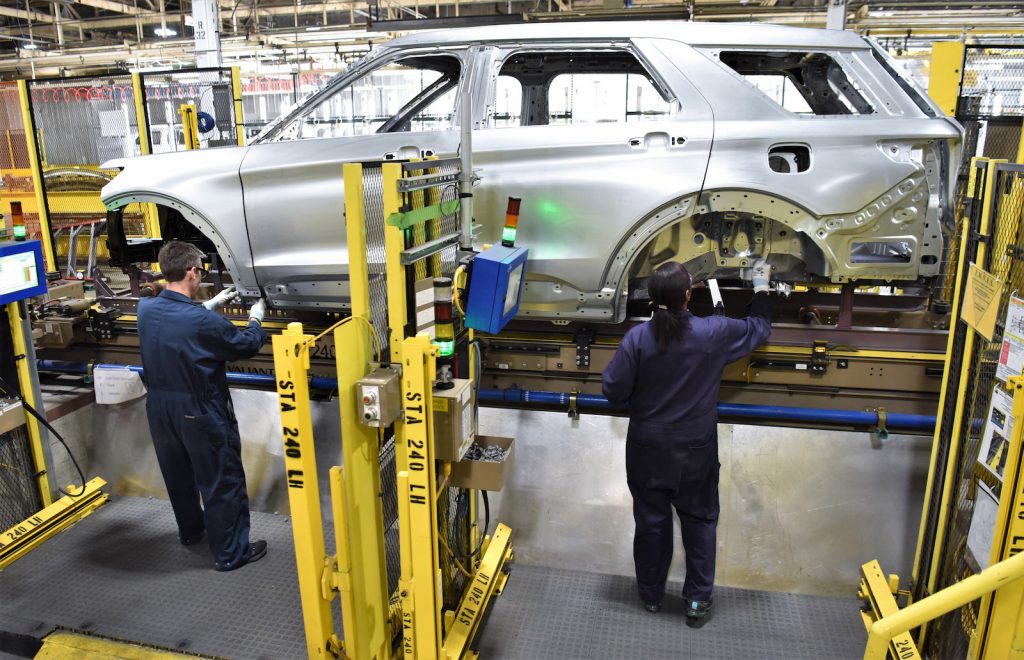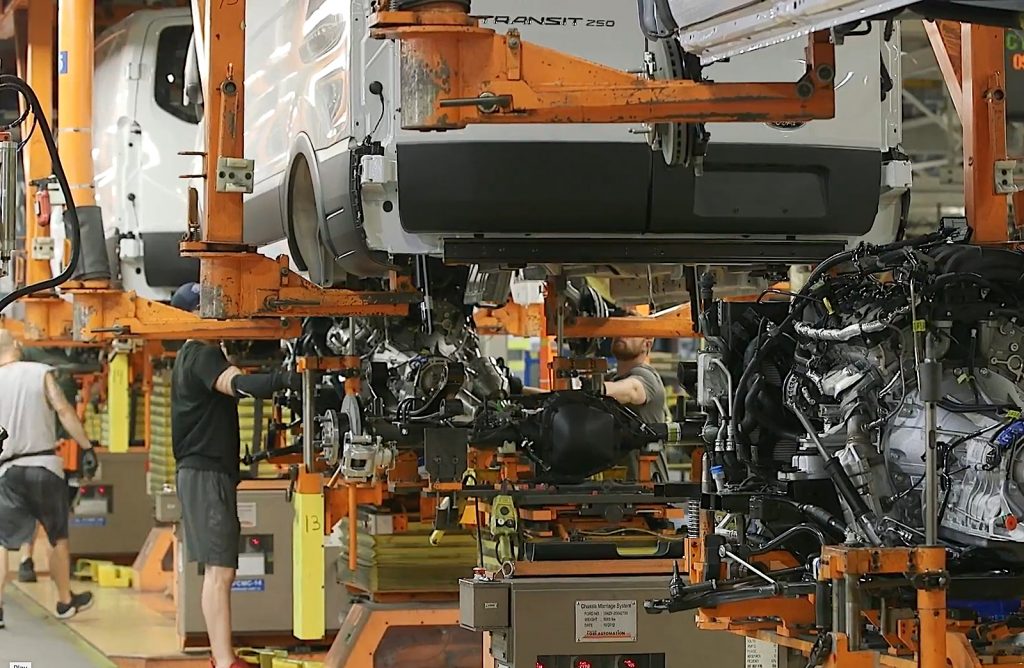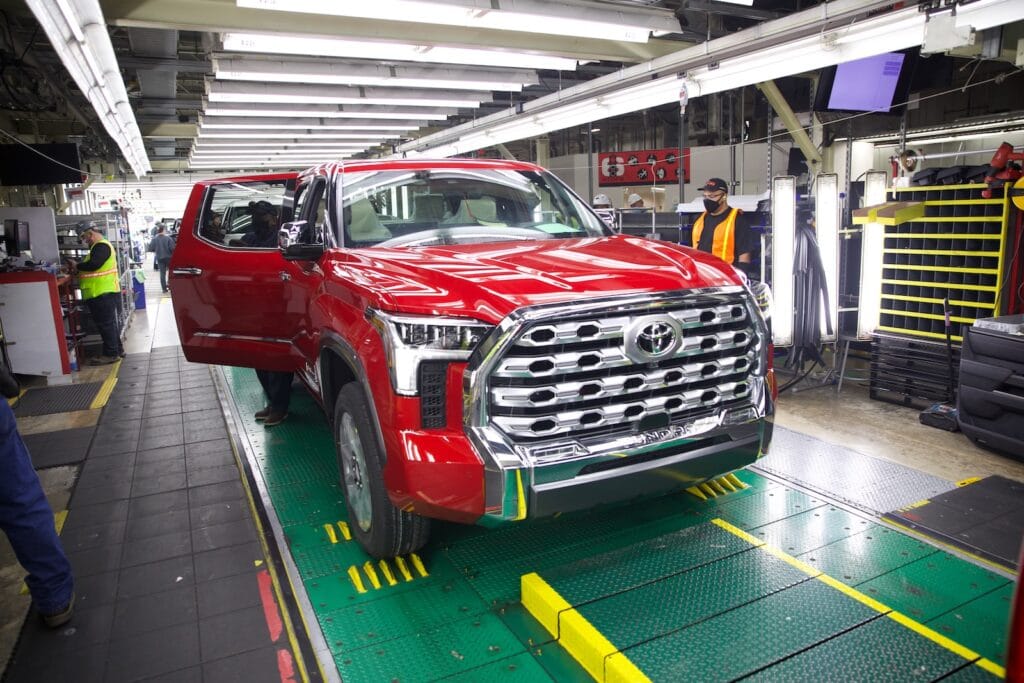Eight Ford assembly plants will see production cut or suspended entirely this week as the automaker continues struggling to find the semiconductors it needs.

Ford is the latest manufacturer to face cutbacks due to ongoing problems with critical chip supplies. Toyota last week confirmed it has cut operations at its San Antonio Tundra plant from two to one shift.
Automakers have been hoping chip supplies would start returning to normal this year but that forecast is looking increasingly optimistic. “The volatile situation will affect us at least beyond the first half of this year,” and possibly into 2023, Murat Aksel, the head of purchasing for Volkswagen telling German trade publication Automobilwoche.
Taking a big toll on automakers, auto buyers
The chip shortage took a big toll on the auto industry last year, consulting firm AlixPartners estimating production fell about 10 million units short of original plans worldwide, while revenues dipped more than $200 billion below initial forecasts. And the situation hasn’t eased up in 2022, at least so far.
Inventory shortages hammered the industry last month, overall new vehicle sales in the U.S. falling about 9% below year-earlier levels. According to J.D. Power there are barely 1 million vehicles on dealer lots, down from the more than 3 million vehicle inventory considered normal this time of year.

Consumers, meanwhile, are struggling to find the products they want. The latest cutbacks will only complicate that situation while putting more upward pressure on vehicle prices.
Ford slams on the brakes
Ford said it will suspend production at factories in Michigan, Chicago and Mexico. And while its Kansas City plant will keep rolling out Transit vans on a single shift, production of the F-150 pickup will be halted there. Further slowdowns are planned at assembly lines in Michigan, Kentucky and Ontario. The cutbacks will continue through at least the rest of this week.
In an email sent last week, a Toyota spokesperson noted that, “At Toyota Motor Manufacturing Texas, we have made a temporary scheduling adjustment by consolidating production from two shifts to one shift.” The facility produces the newly redesigned Tundra, and comes as a real setback for the automaker, Toyota hoping the 2022 model will finally help it crack into a highly profitable market segment long dominated by Detroit.

Last week, Ford warned that ongoing chip shortages would continue to impact industry production levels through at least the first quarter. But both the second-largest Detroit automaker and archrival General Motors have laid out hopes in recent weeks that the situation would improve in the second quarter. Hyundai’s North American CEO José Muñoz recently told reporters that the company had lined up new sources and expected to be able to hold production schedules going forward.
Chipmakers disagree
One good signal came last week from Qualcomm whose Chief Financial Officer Akash Palkhiwala told Reuters, “I do think that a lot of our peers along with us are prioritizing the auto business and shipping as much as you can.”
But such optimistic outlooks aren’t universally shared, as the comments by VW’s purchasing chief underscored.
“Supply limitations are far from over and will persist well into 2022,” Infineon CEO Reinhard Ploss told analysts and media participating in an investor call.
COVID kicked off the crisis
The shortages are tightly linked to the COVID pandemic. When lockdowns were ordered in spring 2020 — including a three-month closure of North American automotive manufacturing — carmakers slashed parts and component orders. But chip manufacturers quickly found alternative demand from consumer electronics companies facing a surge of orders for things like game consoles, smartphones and webcams.

“Semiconductor manufacturers needed to prioritize their manufacturing operations in a post-COVID economy,” noted AutoForecast Solutions in a study released today. “In doing so, contracts to support the consumer electronics customers became priority, with automotive taking a (temporary) back seat.”
The study suggests that automakers might take some chip production in-house to help prevent future shortages.
Taking a new approach
Ford has formed a new alliance with U.S.-based chip manufacturer GlobalFoundries to reduce dependence upon foreign suppliers, though it could take time to rebalance the supply chain.
“We have very painfully learned the lesson that we cannot manage the supply chain for these key components as we have,” CEO Jim Farley said during a conference call last week.
Automakers aren’t the only ones feeling the impact of the chip crisis. Their suppliers — already hurt by COVID-related production cuts — are suffering significant losses, in many instances. Seating supplier Adient reported a $54 million net loss during the first fiscal quarter of 2022. A year earlier it had posted a $150 million gain.
Consumers, meanwhile, are expected to continue coping with dealer inventory shortages throughout 2022, numerous industry officials have warned. And that’s likely to continue the upward pressure on average transaction prices that have surged to a record of around $47,000 in recent months.








We ordered a car in July. The original delivery date was predicted to by February 4. It has been pushed back several times and now stands at May 20. We’ll see if that holds, which I doubt. I am beginning to wonder if the car will even be a 2022 model.